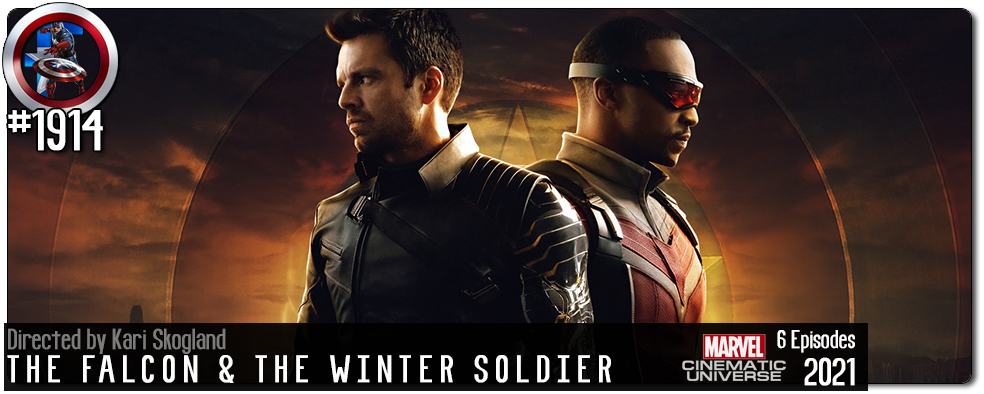Movie Review – Falcon & The Winter Soldier, The
Following the events of Avengers: Endgame, Sam Wilson/Falcon and Bucky Barnes/Winter Soldier team up in a global adventure that tests their abilities — and their patience.
Principal Cast : Anthony Mackie, Sebastian Stan, Wyatt Russell, Erin Kellyman, Danny Ramirez, Georges St-Pierre, Adepero Oduye, Don Cheadle, Daniel Bruhl, Emily VanCamp, Florence Kasumba, Julia Louis-Dreyfus, Cle Bennett, Amy Aquino, Desmond Chiam, Noah mills, Carl Lumbly, Elijah Richardson.
Synopsis: Following the events of Avengers: Endgame, Sam Wilson/Falcon and Bucky Barnes/Winter Soldier team up in a global adventure that tests their abilities — and their patience.
********
Caution: Plot spoilers within.
Marvel Studio’s second foray into televised content kicks off with a blast of high-flying, kinetic helicopter destruction and ends with… well, high flying, kinetic helicopter action. In between and all around this, however, is an intelligent, thoughtful and powerful examination of heroism, what the mantle of Captain America represents (both good and bad), and how humanity is struggling to cope with the lingering effects of Thanos’ snap. The Falcon & The Winter Soldier, set some months after the cataclysmic events of Avengers: Endgame, sees Earth governments trying to figure out what to do with the billions of returned snap survivors as well as all the people displaced by their return. Sam Wilson, aka the Falcon, and Bucky Barnes, aka the former Winter Soldier, are trying to live their lives as best they can in the aftermath, and this six episode Disney+ series goes a long way to fleshing out their backstories and potential futures within the MCU, and makes for rather compelling television.
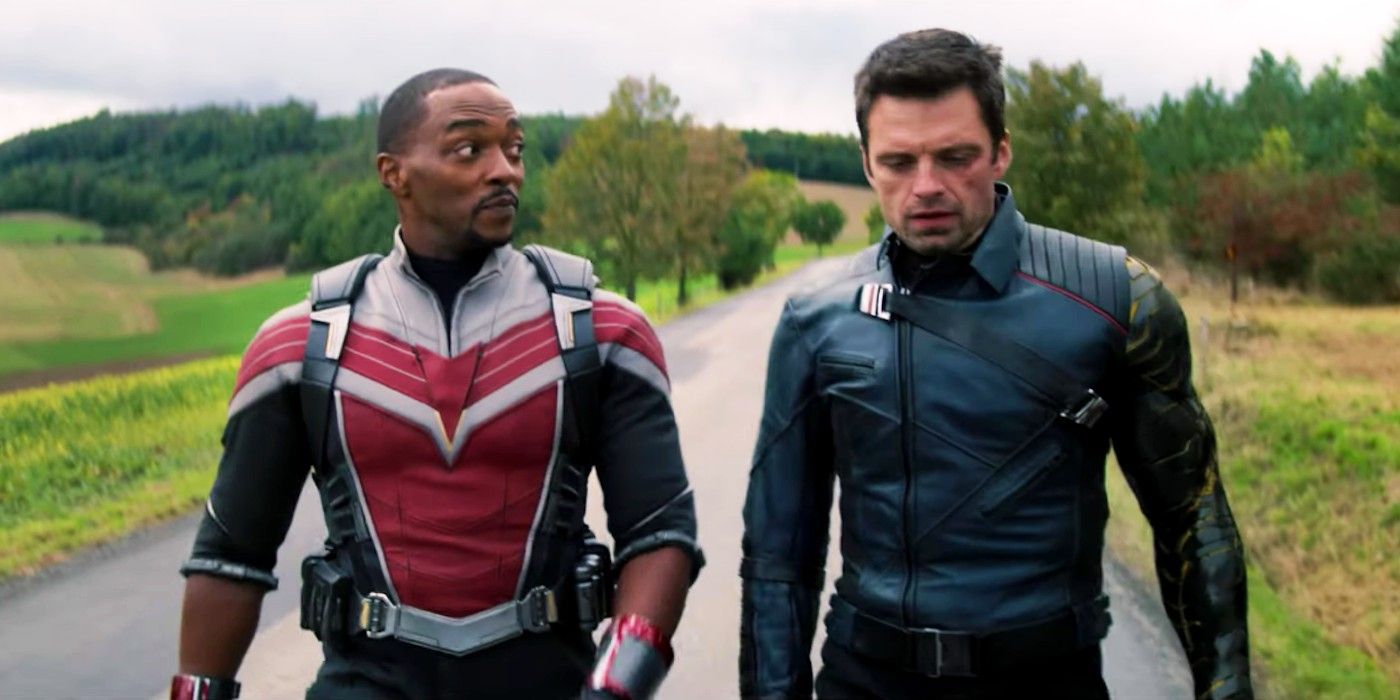
Six months after half of all life returned after the Blip (what the MCU awkwardly calls Thanos’ snap and the five year gap when half of all life was effectively erased from existence), Earth is slowly and painfully adjusting to suddenly having to repatriate all the supposedly vanished. With global borders and enormous numbers of refugees and evicted peoples from across the planet forcing governments to implement the Global Repatriation Council, supposedly to deal with the issue. This brings to life a guerrilla terrorist group calling themselves the Flag Smashers, led by Karli Morgenthau (Erin Kellyman – Solo: A Star Wars Story), who wants to break down global borders. Former terrorist James “Bucky” Barnes (Sebastian Stan – I Tonya) is undertaking mandatory therapy as part of his pardon for past crimes in light of his actions in Endgame, finding a way to repay his debt to society and those whom he has wronged throughout the 80-odd years he was the Winter Soldier. Sam Wilson (Anthony Mackie – Outside The Wire), better known as the Falcon and one of Captain America’s long-time allies, is dealing with not only his family’s future – his parents’ boat is losing money and his sister Sarah (Adepero Oduye) wants to sell up. In light of Sam’s refusal to pick up Steve Rogers’ iconic Captain America shield and inherit the mantle, the US Government has unveiled its own “new” Cap, the incredibly capable and entirely honoured Army veteran John Walker (Wyatt Russell – Overlord), who handles the new suit and shield with the diplomacy of a broken toy. In order to track the Flag Smashers, Sam and Bucky, together with a recalcitrant Walker, enlist the services of former Avengers enemy Baron Helmut Zemo (Daniel Bruhl – Rush), taking them on a trans-continental journey to locate the mysterious Powerbroker with the aim of locating more of the same super-serum that turned Steve Rogers into America’s premier superhero. On the way, they run into former SHIELD agent Sharon Carter (Emily VanCamp – Revenge), who has turned herself into a criminal kingpin in the violent and dichotomous city of Madripoor, while Sam also spends time with Isaiah Bradley (Carl Lumbly – Doctor Sleep), a Korean War veteran who also happens to be a black super-soldier and a representative of all the racial injustice the US has visited upon his people down the years.
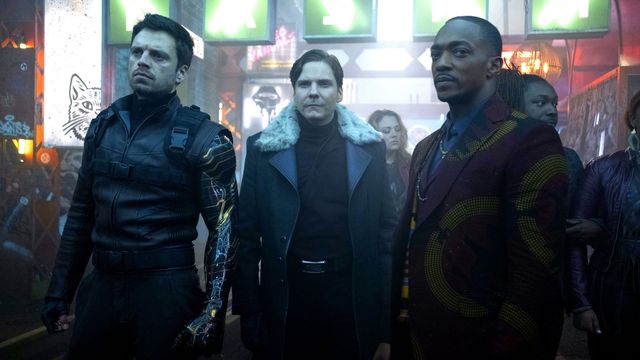
With both Wandavision and now The Falcon & The Winter Solder, and hopefully soon with Loki, the MCU has deployed one of the most surreptitious weapons in its entire arsenal. The benefit of pushing some of its rapidly expanding universe of characters onto the Disney+ streaming platform is that it allows formerly supporting characters with comparatively limited screen time more room to breathe and develop. Sam Wilson and Bucky Barnes have until now been supporting characters to Steve Rogers as Captain America, either as an ally or a villain, and with six episodes, each approximately forty minutes in length, both fan-favourite characters are now afforded the spotlight in their own lead roles allowing them to flesh out possible arcs beyond Endgame’s Earth-shattering climax. As with WandaVision, this series also spreads the wings of fleshing out the wider toll Thanos’ snap has taken, and will continue to take on the people directly and indirectly affected, which only goes to broadening the canvas the MCU has to paint on in what is loosely Phase Four of its ongoing storytelling arc. Whilst the major players are still given their feature film treatment – we’re soon to see Black Widow land (finally) on the big screen this year, as well as a returning Spider-Man – the fact that Marvel can give its supporting players more time in the sun on the smaller screen only serves to highlight just how diverse and intellectually stimulating the properties they deliver can truly be.
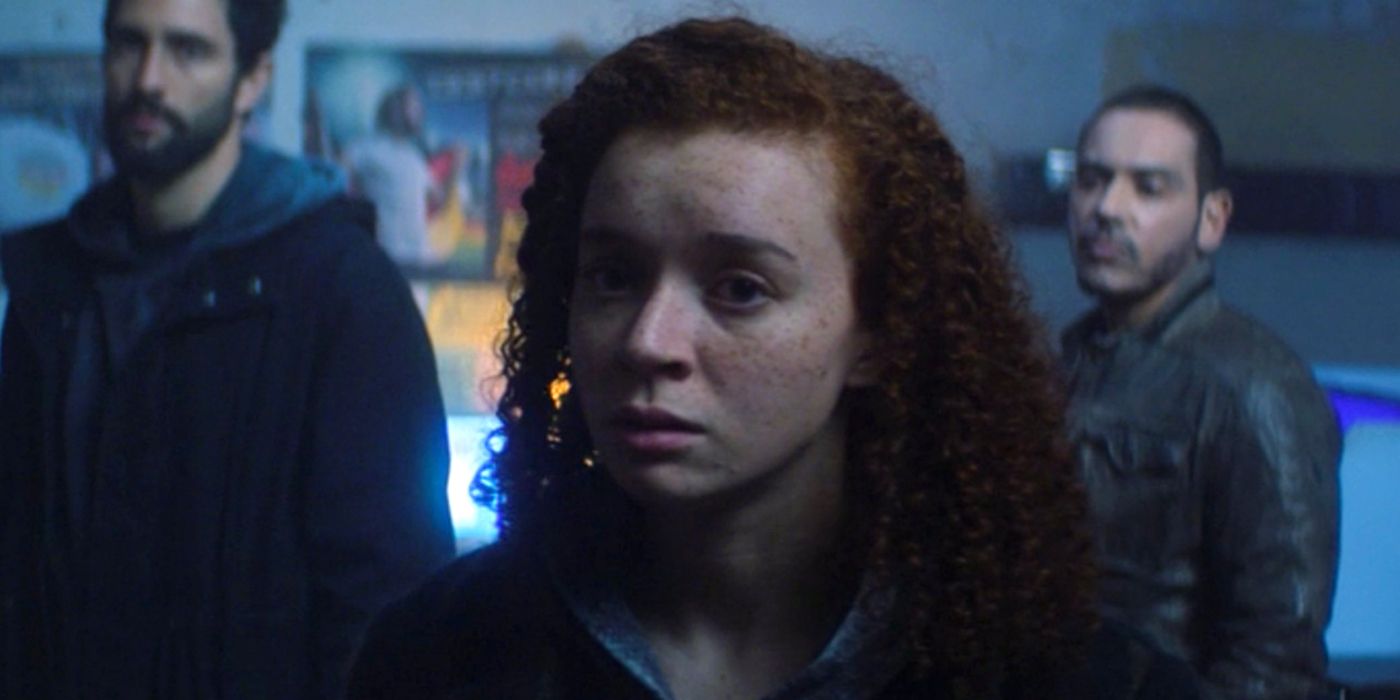
The Falcon & The Winter Soldier could have played it safe by setting itself up simply as a buddy-comedy entry into the MCU, with the banter between Sam and Bucky among the more memorable highlights over the last decade or so of filmmaking ensuring audiences would love to see them together again. The series does this, sure, and the banter is delightful, but the limited series also achieves so much more than mere comic-booky capeshit. The series showrunner Malcolm Spellman indicated that both characters’ would have their own personal trials; Bucky would have to reconcile his murderous past whilst in the thrall of Hydra as the Winter Soldier, and Sam needed to process how to be Captain America whilst being a black man, something only too incendiary a premise given the political and social climate of the early 2020’s. Spellman and his co-writers, including Derek Kolstad and Dalan Mussin, create a hugely ambitious multi-narrative thrust with this show, combining the intrigue of a more realistic crime thriller, the operatics of high-flying superhero antics, and attempting to answer the question of “why would a black man assume the title of a hero for a country who obviously hates his skin colour?”.
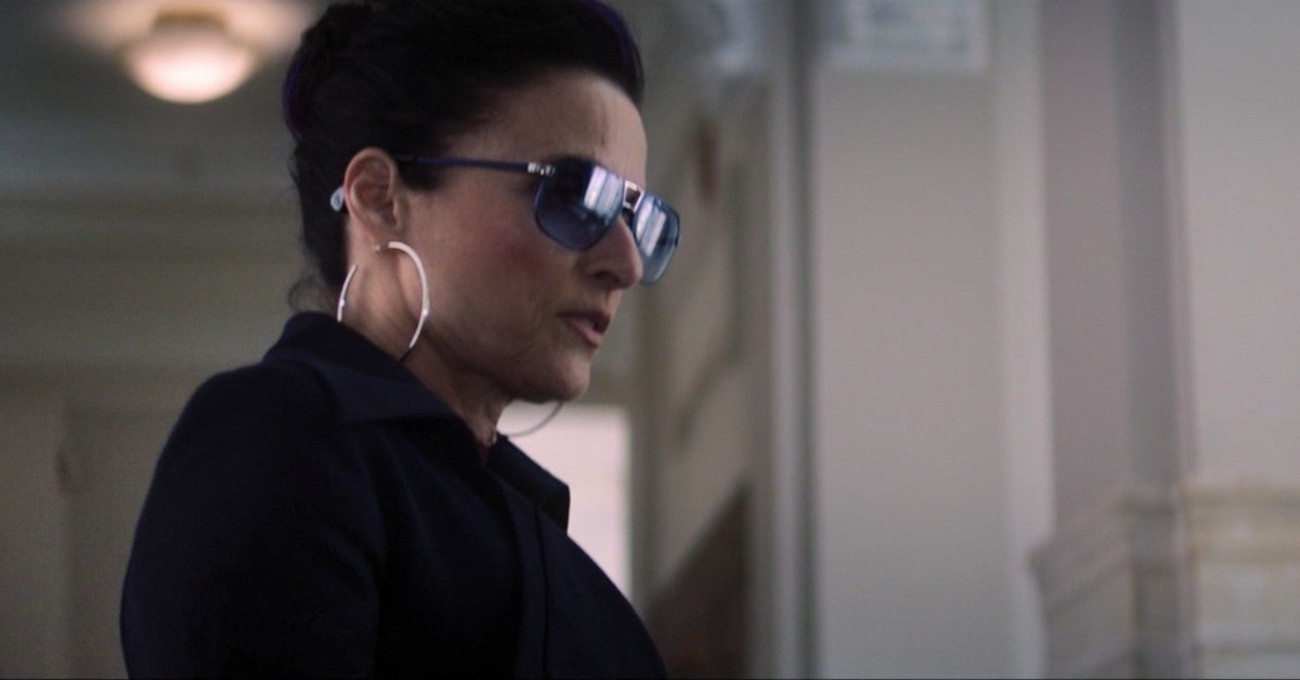
The three lead storylines, the Sam/Bucky dissection of what makes a hero, the New Cap subplot with Wyatt Russell’s John Walker finding the grey areas of being Captain America tough to handle, and the Karli Morgenthau super-serum plot, make for compelling material in their own right, and the show combines all three in a slow-dance of rhythm and dramatic urgency. One of the best way to write a villain is to make us, the audience, empathise with them. To make us see their side of things immediately makes their villainy more potent a dramatic inciting agency within the story. That Thanos had us all convinced he was actually right only served to make Infinity War and Endgame the titanic films they were because we kinda sorta felt that he wasn’t exactly wrong; the same goes for Karli Morgenthau’s motivations to free humanity from arbitrary borders and governmental constructs, constructs lost during the five-year blip but nor reconstructed in light of all those people suddenly coming back. That Morgenthau’s reasoning and logic is solid and yet we know she cannot win makes her all the more compelling. The same goes for John Walker: he’s a decorated military man who is arguably more deserving of being Captain America than even Steve Rogers, based purely on his service record, but as he starts to find the rigors of actually wearing the costume and carrying the shield causes him to question his loyalty to his country, things fall apart rapidly. Again, his motivations and reasoning are rock solid, and you feel for the guy as he grapples with how he sees things going all so wrong, but you know he has to be stopped. These two characters are villains of opposite colours, opposing sides on the same coin.
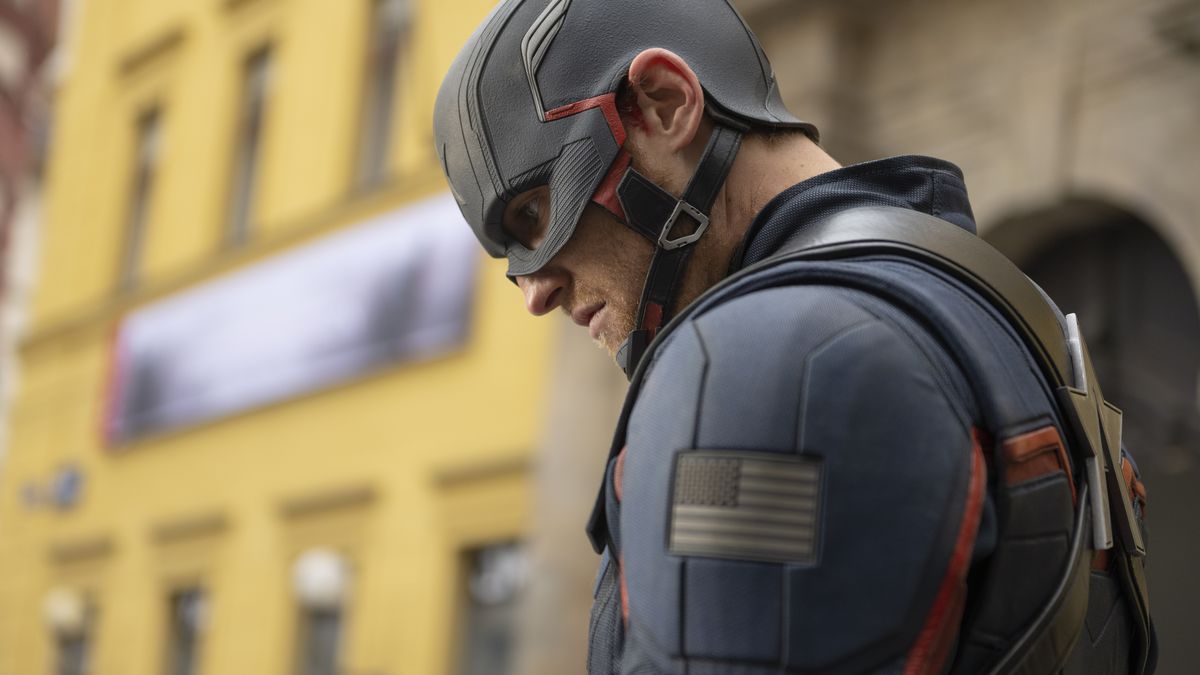
But the most moving aspect of The Falcon & The Winter Soldier is the examination of what it means to be black in America today, what it meant to be black in America yesterday, and what being a black Captain America might mean for the future. Anthony Mackie’s performance took a while for me to come around to, but both the writing and Kari Skogland’s (House Of Cards, The Handmaid’s Tale) solid direction sold this dark, horrifically saddening subplot entirely. Meeting Isaiah Bradley (I had never even heard of the character before, and his backstory both here and in Marvel Comics’ is quite tragic) is among the series’ most astute creative choices, as both Bradley and Sam argue back and forth about not just what being a superhero for America might mean but what being black in America means as a whole. Some of the show’s best moments are the quiet conversations between Mackie and Lumbly as they wrestle ideologically back and forth about this, and it’s this story that directly pays off with the series’ climactic costume reveal in episode six, in which Sam dons a Wakandan-made uniform of blue and white as the next, next Captain America.
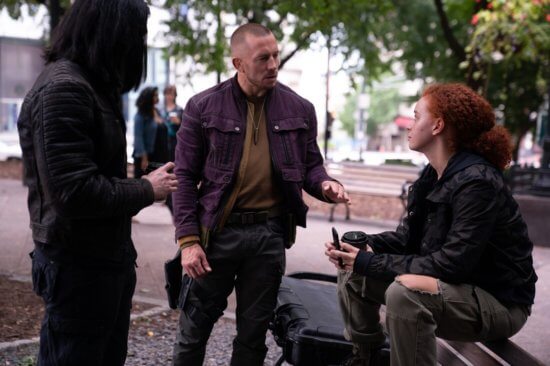
Key MCU elements also return with much glee, notably Daniel Bruhl’s Baron Zemo and the Wakandan soldiers the Dora Milaje, led by Florence Kasumba’s Ayo, all of whom kick all kinds of ass. The MCU version of Zemo has been labelled as one of the weaker villains the franchise has had thus far, a sentiment I’ve always disagreed with in that he is one of only a few, if any, who actually achieved their end goal. Bruhl is a dynamite actor and inhabits the Zemo we love on screen again, and plays him with swagger and determination mixed with arrogance, a great foil for the brat-pack antics of Sam and Bucky as they seem to stumble from one brawl to the next. It’s also cool to see Don Cheadle in episode one as Sam and Rhodey discuss Sam’s desire not to inherit the shield; Cheadle will lead the upcoming Disney+ series Armor Wars, so it’s pleasing to see him still around this universe.
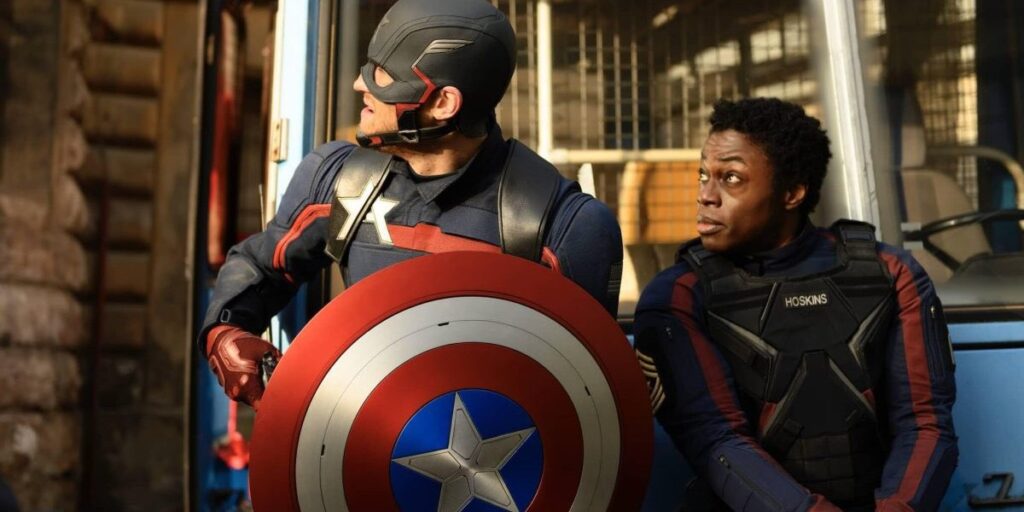
Among the story points I felt were a touch undercooked was the one involving Emily VanCamp’s Sharon Carter, niece of Steve Rogers’ girlfriend Peggy Carter. Sharon has had to resort to becoming a dastardly crimelord in the slums of Madripoor, a glistening fictional Southeast Asian city if you mashed Singapore and Manila together, after her government abandoned her when SHIELD collapsed. She has a vendetta against the US, is persona non grata, and when the mysterious Powerbroker comes onto the scene it quickly becomes evident exactly who that character is. Trouble is, I had a real issue seeing Sharon Carter as the hardass crimelord she was intended to be, and VanCamp herself was unable to convince me she’d spent the last four or five years building up a credible criminal empire enough to warrant the “twist gasp reveal” payoff in the series’ climax. The heralded return of one of Captain America: The Winter Soldier’s more enthusiastic antagonists, Batroc (played by former MMA star Georges St-Pierre) felt like a bit of stunt plotting – the actor turns up in the explosive opening action sequence before disappearing until the final episode, whereupon he’s given a remarkably lacklustre exit from the MCU entirely – although this is contrasted by the introduction of influential and charismatic villainess Valentina Allegra de Fontaine, played by Seinfeld actress Julia Louis-Dreyfus. Val, as she is known, is something of an anti-Nick Fury, and her arrival in this series (although technically she was due to be seen in Black Widow first, before it was pushed back due to Covid-19) indicates another ongoing behind-the-scenes plot against the status quo to come.
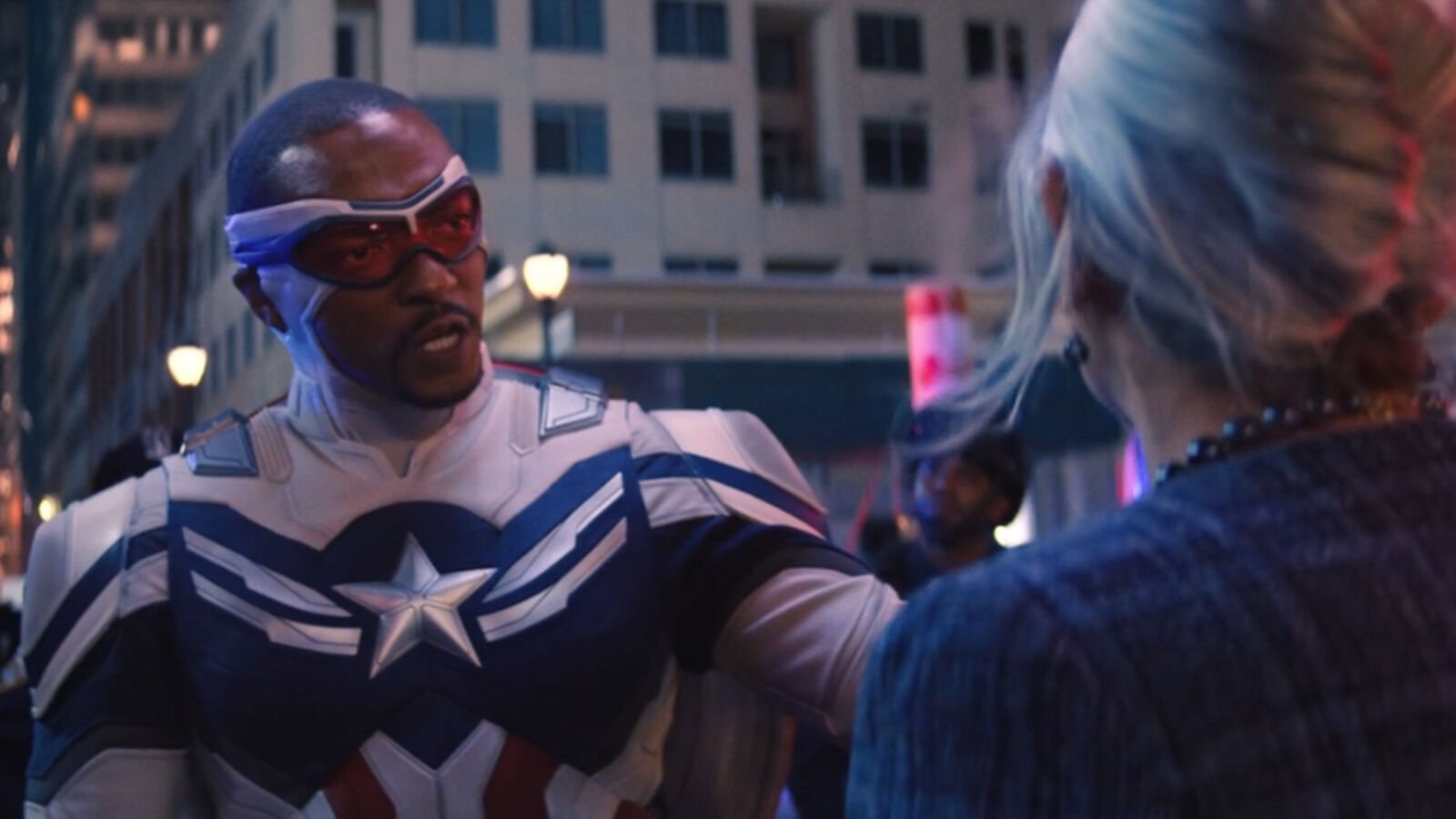
Rewatching The Falcon & The Winter Soldier episodes consecutively without pause, rather than as weekly dropped instalments, makes for a more engrossing and appreciated entertainment. The storylines and character flow well, the direction of each episode is coherent and well thought-out – and the cliff-hangers are exactly what you need to keep you guessing as to what will happen next! – and the production value is on-par with most of the MCU’s middle-tier feature films to-date. The show can’t possibly accomplish Endgame levels of visual effects with its smaller budget, but Kari Skogland brings the feature film feel to the series with great camerawork, solid use of visual effects, and a truly global production (the show shot in Atlanta for most of the time, but also travelled to Prague in and around the pandemic), whilst the cinematography, editing, musical score (by Henry Jackman, who also scored the three Captain America films for Marvel, apropos of nothing) is first rate. Whereas WandaVision tripped the light fantastic with its clever use of period design and flashback-forward storytelling, The Falcon & The Winter Soldier’s more straightforward narrative and compelling character development stand it in good stead for being just as rewatchable even if it lacks the showreel pizazz of its streaming antecedent.

